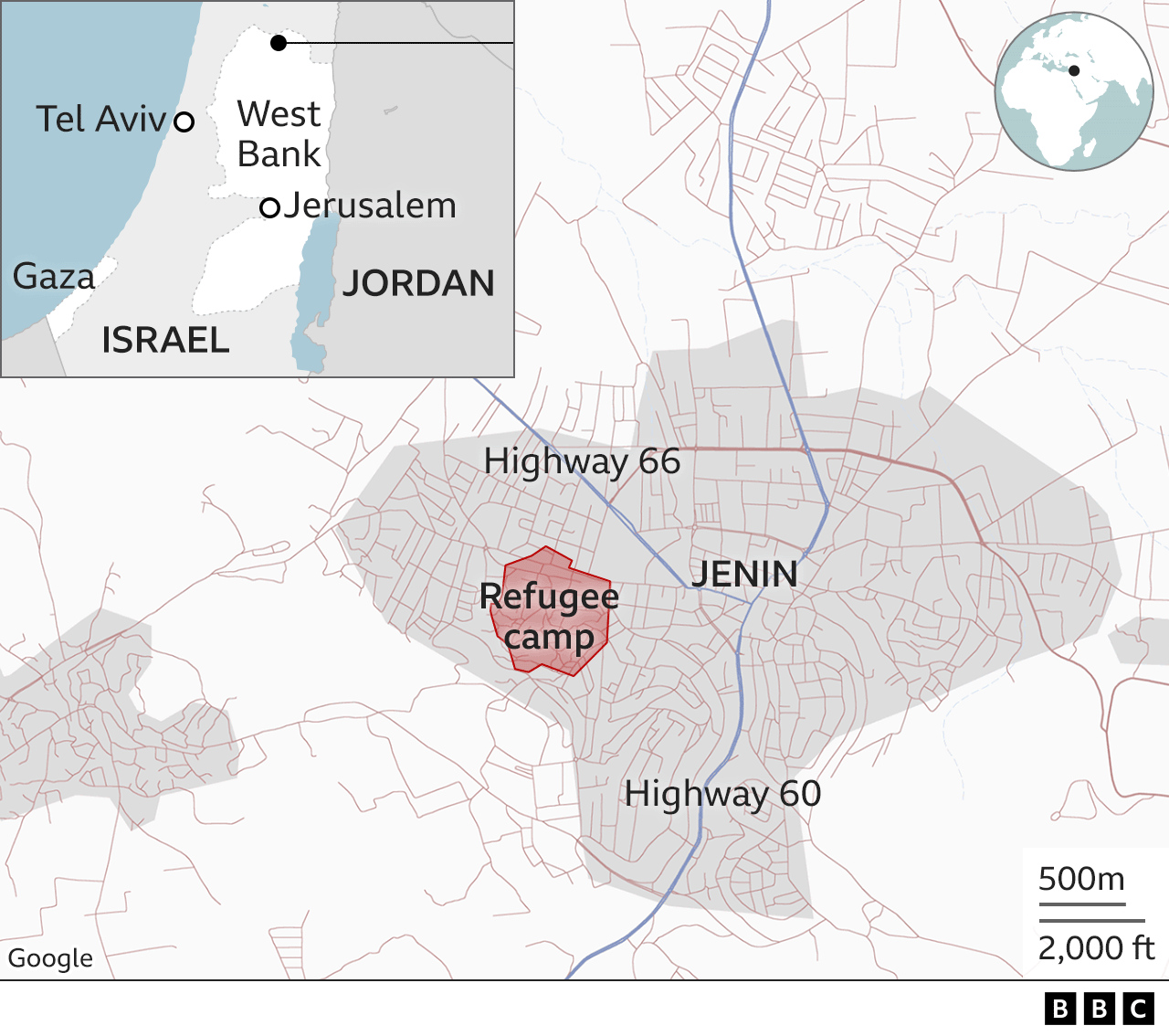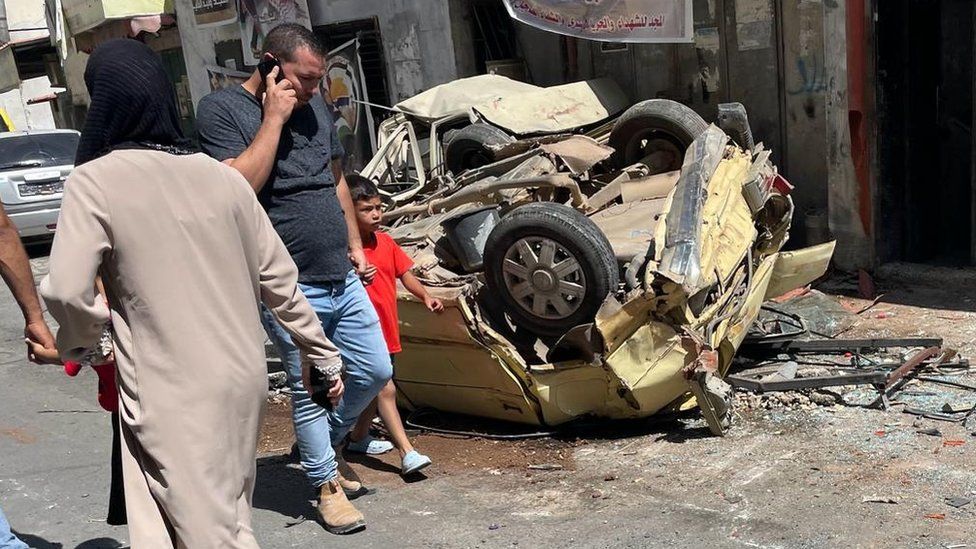The atmosphere in the Jenin refugee camp is similar to one I've experienced in Gaza following Israeli wars.
However, given that this is the occupied West Bank, the dynamics are quite different. It appears that we are already in the midst of a rapid descent into something much more dangerous.
There has been extensive damage to the camp. Israel cleared roads of what it claimed were roadside bombs planted by militants by firing missiles from drones—air strikes haven't been used in the West Bank in 20 years. Soldiers and Palestinian militants engaged in fierce gun battles.
Thousands of locals pour into the streets to witness the devastation now that they are safe to do so after Sunday.
They climb over debris, photograph the wreckage on their phones, and share their experiences while pointing out which homes were searched, whose sons were taken into custody, and where the fatalities occurred. One man approaches me and says it reminds him of images from Syria and Turkey from earlier this year, following the earthquake.
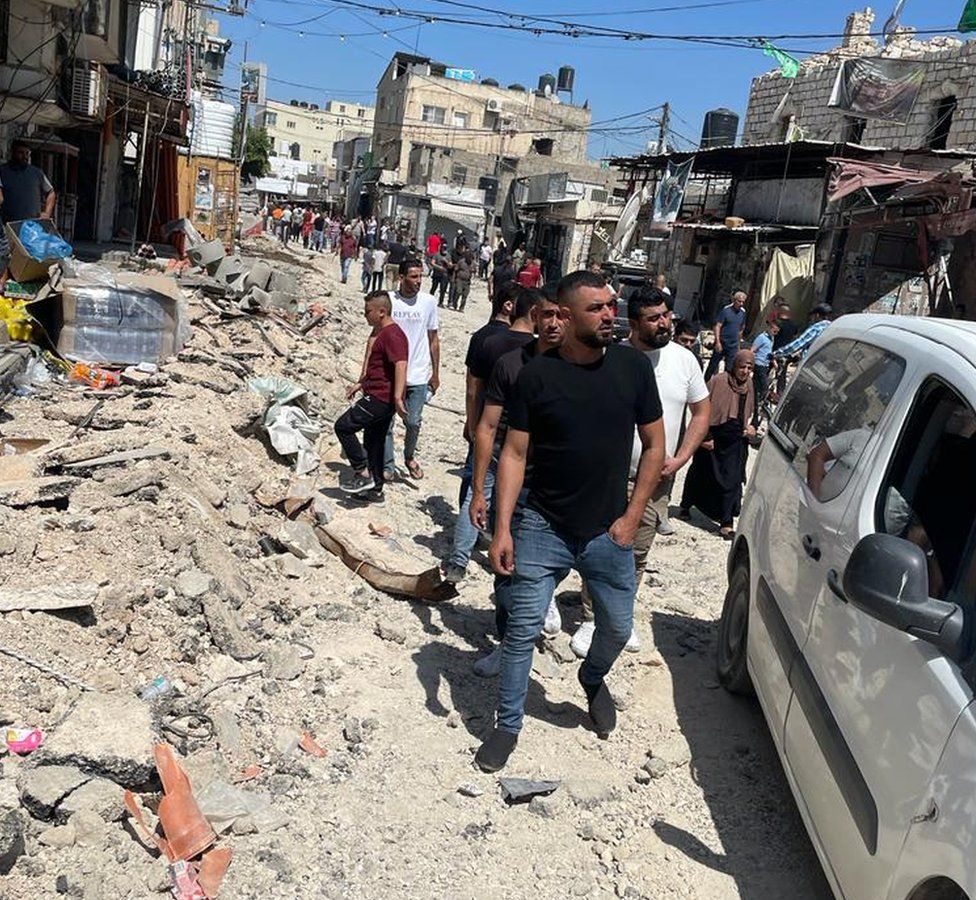
Where vehicles were carved out of the way of Israel's D9 armored bulldozers, they now lie crushed and thrown aside. Huge pieces of torn-up tarmac are scattered everywhere. Rubble, sand, and dust make up the area where the streets once stood.
Many homes are without power or water. Bottled water is brought in crates by aid volunteers. They join the recovery workers, some of whom are operating the few available diggers. One involves removing a fallen tree from a residential building's roof. It dangerously closes in on us as it shears away a portion of the ground-floor shop's facade.
In the midst of fierce gun battles with militants, the Israeli armored convoys withdrew over night. Everyone worries that more is coming despite the calm today. Israel asserts that it will continue such operations "as long as necessary to uproot terrorism," while Palestinian militant organizations declare "victory" and threaten retaliation.
As we move through the camp, the funeral processions start. Thousands of mourners carry stretchers with some of the 12 Palestinians killed since Monday while chanting. Four of them were under 18 years old. Israel claimed to be going after militants.
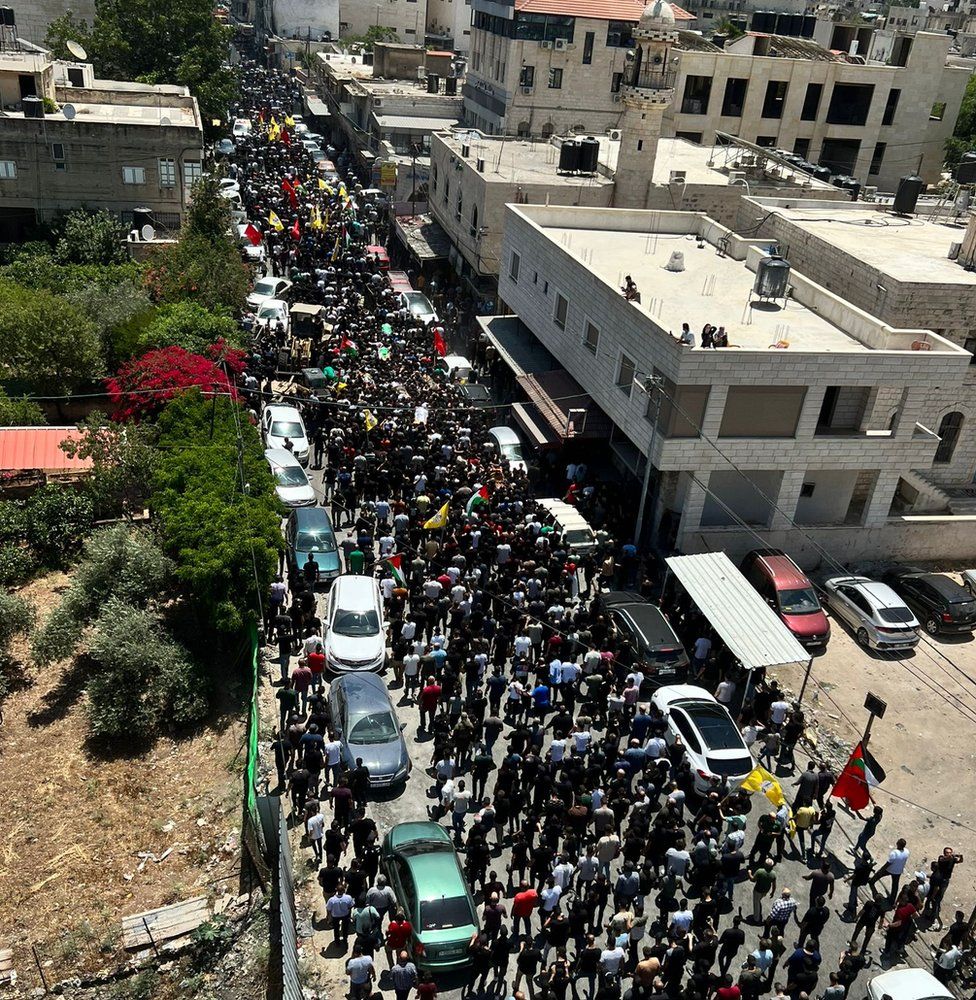
Joining columns of people. Some of the men leading the march are armed and wearing masks, while others are sporting Islamic Jihad headbands, and Hamas flags are flying over a nearby structure. As they approach the homes of the deceased, where their mothers and wives wait, the crowd is filled with rage.
However, compared to previous funerals, the firepower displays seem less intense when seen by the general public.
Over the past 18 months, I have visited Jenin several times as a new generation of armed militants has emerged, rejecting the aging Palestinian leadership and launching rockets at the Israeli army during its increasing incursions into the city.
This generation feels that the official Palestinian Authority (PA) abandoned their future and devolved into a security provider for Israel's military occupation, which secures the growing Israeli settlements in the West Bank that were established on Palestinians' desired future state territory and are therefore prohibited by international law.
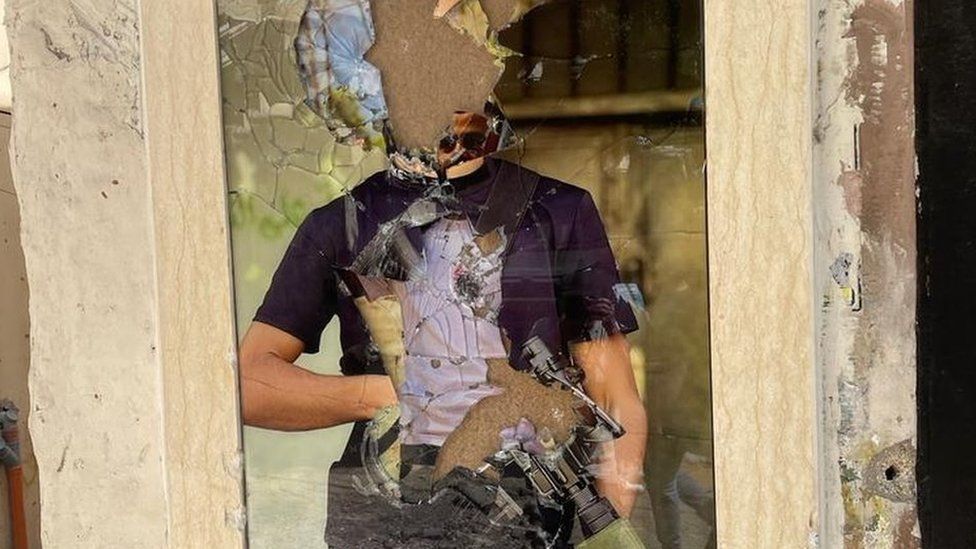
There has been less shooting today, but the anger is growing. Overnight, young Palestinian men engaged in combat with the PA's official security forces. The city of Jenin had already gotten out of its limited grasp.
The institutional remains of a three-decade-old peace process are currently being put to the ultimate test in the occupied West Bank.
Israel claims it will keep eradicating Jenin, which it refers to as "a city of refuge for terrorism," but the Palestinian militant factions claim they will step up their operations. Islamic Jihad referred to a Tuesday car-ramming and stabbing attack in Tel Aviv that injured seven Israelis as the "first response" to what was happening in Jenin.
The escalating violence is yet another indicator that any political horizons are collapsing. Some worry that Israeli blockade and increased military attacks on Palestinian cities in the West Bank will make life in Gaza, which is run by Hamas, more difficult for residents.
As more Palestinians support armed resistance and reject their own internationally recognized leadership, Israel continues to be ruled by the most radical administration it has ever known, which has vowed to extend what it calls exclusive Jewish rights to the entire land.
